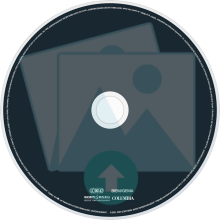
Cover NOT yet available in
Join up for 4K upload/download access
Your Rating (Click a star below)
![]()
![]()
![]()
![]()
![]()
![]()
![]()
![]()
![]()
![]()
Track List
01) Evergreen (Love Theme from "A Star Is Born")
02) Love Theme from "Eyes of Laura Mars" (Prison
03) My Heart Belongs to Me
04) Songbird
05) You Don't Bring Me Flowers
06) The Way We Were
07) Sweet Inspiration / Where You Lead
08) All in Love Is Fair
09) Superman
10) Stoney End
01) Evergreen (Love Theme from "A Star Is Born")
02) Love Theme from "Eyes of Laura Mars" (Prison
03) My Heart Belongs to Me
04) Songbird
05) You Don't Bring Me Flowers
06) The Way We Were
07) Sweet Inspiration / Where You Lead
08) All in Love Is Fair
09) Superman
10) Stoney End
3:09
3:56
3:23
3:47
3:26
3:32
6:27
3:52
2:49
3:00
Data Complete 60%
Total Rating
Total Rating
![]() (0 users)
(0 users)
Back Cover![]()
CD Art
3D Case
3D Thumb
3D Flat
3D Face
3D Spine
First Released
![]() 1978
1978
![]() Jazz
Jazz
![]() Bittersweet
Bittersweet
![]() Rock/Pop
Rock/Pop
![]() ---
---
![]() ---
---
![]() Compilation
Compilation
![]() 0 copies
0 copies
Album Description
Available in:
Between the release of Barbra Streisand's first hits collection in 1970 and her second in 1978, she essentially became a different kind of recording artist. In the 1960s, she made a series of consistent albums devoted largely to show music material, but she scored precious few singles hits, with only one, "People," and reaching the Top Ten. But in the 1970s, she shifted to contemporary soft-rock and released a series of highly successful ballad singles, while her albums became largely inconsistent. For that reason, the hit quotient of her second hits album was much higher--"The Way We Were," "Love Theme From 'A Star Is Born' (Evergreen)," and the duet version of "You Don't Bring Me Flowers," sung with songwriter Neil Diamond and released on album here for the first time, all were number one hits, while "Stoney End" and "My Heart Belongs to Me" were Top Tens and "Sweet Inspiration/Where You Lead," "Songbird," and "Love Theme From 'Laura Mars' (Prisoner)" reached the Top 40. That was enough material to make Volume 2 Streisand's definitive hits collection, so much so that later compilations like Memories and A Collection/Greatest Hits...And More would be forced to cannibalize it. It was also a genre-defining album in terms of the emergence of a post-'60s contemporary pop music that drew upon the rock revolution to redefine classic pop for a new generation.

User Album Review
None...
External Album Reviews
None...
User Comments


Available in:
Between the release of Barbra Streisand's first hits collection in 1970 and her second in 1978, she essentially became a different kind of recording artist. In the 1960s, she made a series of consistent albums devoted largely to show music material, but she scored precious few singles hits, with only one, "People," and reaching the Top Ten. But in the 1970s, she shifted to contemporary soft-rock and released a series of highly successful ballad singles, while her albums became largely inconsistent. For that reason, the hit quotient of her second hits album was much higher--"The Way We Were," "Love Theme From 'A Star Is Born' (Evergreen)," and the duet version of "You Don't Bring Me Flowers," sung with songwriter Neil Diamond and released on album here for the first time, all were number one hits, while "Stoney End" and "My Heart Belongs to Me" were Top Tens and "Sweet Inspiration/Where You Lead," "Songbird," and "Love Theme From 'Laura Mars' (Prisoner)" reached the Top 40. That was enough material to make Volume 2 Streisand's definitive hits collection, so much so that later compilations like Memories and A Collection/Greatest Hits...And More would be forced to cannibalize it. It was also a genre-defining album in terms of the emergence of a post-'60s contemporary pop music that drew upon the rock revolution to redefine classic pop for a new generation.
User Album Review
None...
External Album Reviews
None...
User Comments

No comments yet...

